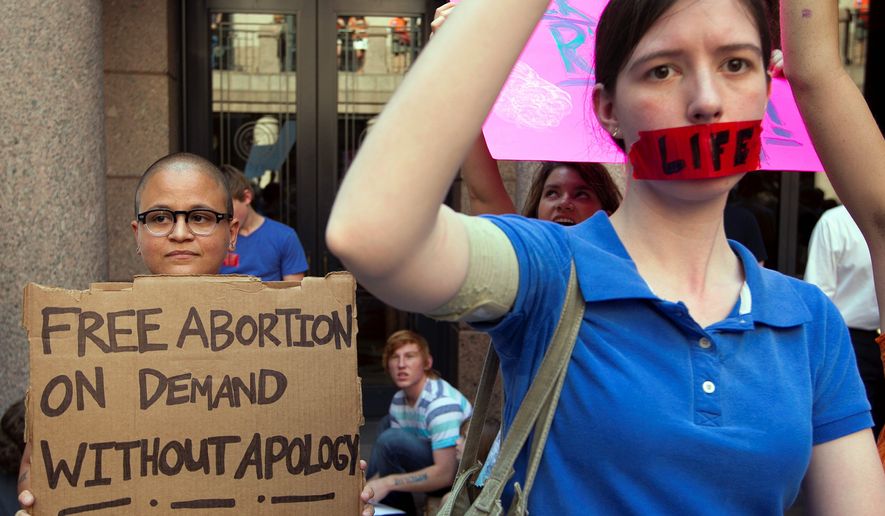Saying a Texas law regulating abortion is making women doubt that abortion is still legal in the state, the leader of an abortion clinic network is urging the Supreme Court to intervene.
“It’s been a long and arduous road to get to today’s filing, but that’s nothing compared to the obstacles that Texas women seeking reproductive health services will face” if the Supreme Court “denies our request and allows HB2 to fully go into effect,” Amy Hagstrom Miller, president and chief executive of Whole Woman’s Health, said Thursday.
Enacted in 2013, HB2 requires clinics to meet the standards of ambulatory surgical centers, and for abortion doctors to have local hospital-admitting privileges so there can be medical continuity in the event of an abortion-related emergency for a woman.
Supporters said such provisions are needed to bring abortion clinics up to medical standards, and prevent “house of horror” abortion clinics, such as that of convicted Philadelphia murderer Kermit Gosnell.
Pro-choice critics of the law say neither kind of provision is needed, and they merely serve as a “backdoor” way to shut down abortion clinics.
The Texas case has national implications, said Nancy Northup, president and chief executive of the Center for Reproductive Rights (CRR), which is representing Whole Woman’s Health.
If the Supreme Court accepts the case in the fall, and rules that the Texas law is unconstitutional, it will “put teeth” in its previous abortion ruling that said states may not impose an “undue burden” on women seeking abortions, Ms. Northup said.
If the high court denies review of their Texas case, or rules in favor of the law, then states would enact “copycat” laws and greatly restrict women’s right to abortions, she said.
In Texas, at least two Whole Woman’s Health abortion clinics have been “forced to close” by the law, while two other clinics are now operating, but had to shutter for a while, Ms. Miller said.
Those events have led to “financial strain and overall confusion,” with some women even questioning if abortion is still legal in Texas, Ms. Miller said.
“Our ability to get safe medical care should not depend on whether we have the resources necessary to navigate a horrific and complex obstacle course dreamt up by anti-choice lawmakers,” Ms. Miller said, adding she hoped that the Supreme Court ”will take a stand, hear our case, and remind lawmakers that women’s health is not a game.”
Whole Woman’s Health has eight abortion clinics. Four are in Texas, in McAllen, Forth Worth and two sites in San Antonio. Other clinics are in Minneapolis; Baltimore; Peoria, Ill.; and Las Cruces, N.M.
The company’s Texas clinics in Beaumont and Austin closed due to HB2.
At the end of June, five Supreme Court justices issued a temporary injunction on HB2, which meant its two contested provisions could not be enforced on July 1.
Four justices — Chief Justice John G. Roberts Jr., Antonin Scalia, Clarence Thomas and Samuel A. Alito Jr. — voted against the temporary stay.
Pro-life Operation Rescue said it was disappointing that the high court in June decided to block the law, and “keep dangerous abortion facilities open” when they cannot comply with “common-sense safety laws.”
• Cheryl Wetzstein can be reached at cwetzstein@washingtontimes.com.




Please read our comment policy before commenting.